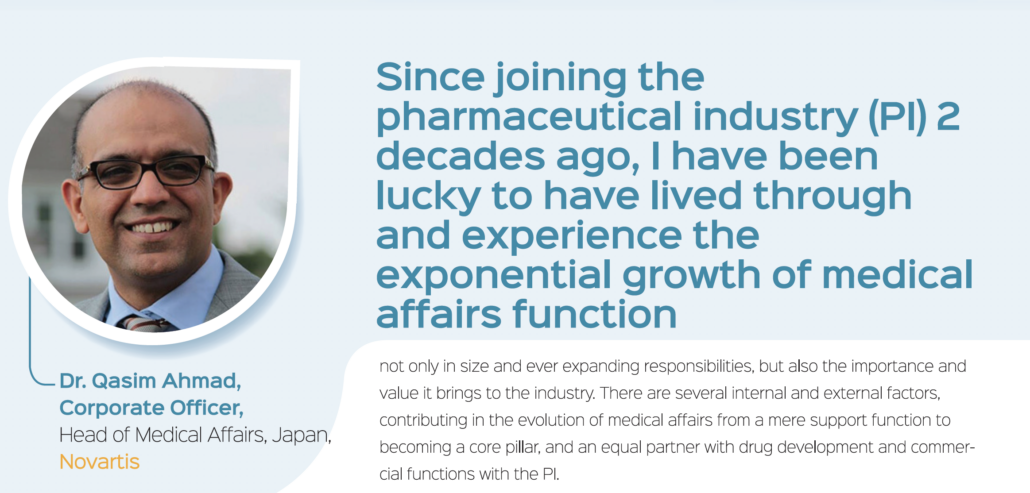Five Modern Medical Affairs Competencies
Dr. Qasim Ahmad, Corporate Officer, Head of Medical Affairs, Japan, Novartis

Since joining the pharmaceutical industry (PI) 2 decades ago, I have been lucky to have lived through and experience the exponential growth of medical affairs function, not only in size and ever expanding responsibilities, but also the importance and value it brings to the industry. There are several internal and external factors, contributing in the evolution of medical affairs from a mere support function to becoming a core pillar, and an equal partner with drug development and commercial functions with the PI.
In recent years, we have seen significant and unprecedented advances in biotechnology, delivering novel treatments and data sets, faster than ever before. There is an information overload, which calls for smart and innovative ways to design, analyse, disseminate and communicate the value of evidence, to the right end user (the customers), at the right place and the right time.
Concurrently, health systems across the world are becoming over-burdened, facing considerable sustainability challenges, due financial constraints, ageing, increasing population, changing disease patterns, persisting as well as new communicable diseases (COVID-19) and cost burden of chronic non-communicable diseases, including cancers.
You must also develop command on evolving health care environment and be equipped to meet the challenges associated with growing drug approval complexities and health technology assessment criteria for access. Develop unique competencies and transformative operating models to address these requirements, build capabilities that are ideally suited for medical affairs organization to generate data beyond traditional registration trial safety and efficacy packages, to facilitate evidenced based decisions making based on patient centric, clinically meaningful, health outcomes, access and quality of life real world data (RWD) data sets.
As you think of building your career in medical affairs, keep the above opportunities and challenges in consideration, the following 5 core medical affairs competencies will help nurturing your talent as patient and customer centric medical champions, ready now for future.
- Enterprise Perspective
- Functional Excellence
- Health System Thinking
- External Facing Organization vs Internal focused
- Effective Leadership & Governance


